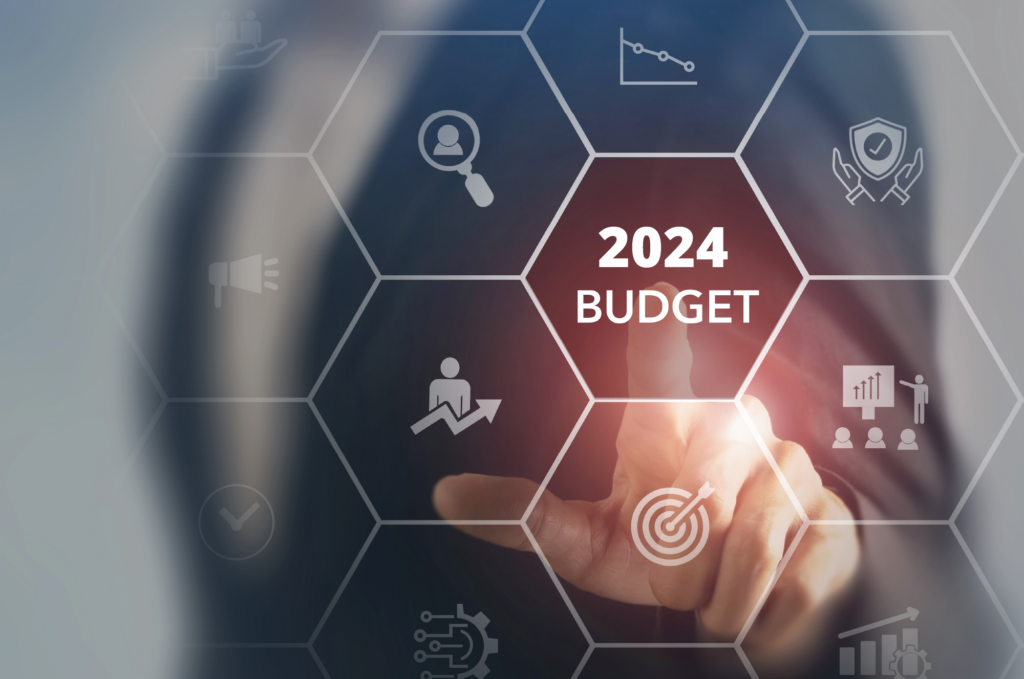HAVE YOUR OWN BUDGET SHORTFALL? HERE'S WHAT TO DO.

“The cold, harsh reality is that we
have to balance the budget.”- MICHEAL BLOOMBERG - FORMER NYC MAYOR
Government’s approach to balance this year’s National Budget 2024 shortfall of R15 billion didn’t set a positive example for South African individuals and businesses that face the same economic challenges but are, unlike government, unable to side-step spending cuts by squeezing taxpayers and tapping into national reserves.
Given the economic conditions, business and personal budget shortfalls are not uncommon. Find out here why it is so important to balance your own budgets and what to do when facing a shortfall without compromising your capacity to achieve your goals.
Budget shortfalls are not uncommon across the public and private sectors, especially in these economically challenging times. A budget shortfall is a significant concern for any individual or organisation and should be corrected promptly. To address the R15 billion shortfall in National Budget 2024, the South African government earlier this year did not cut its spending, but rather indirectly raised individual taxes by not adjusting personal tax brackets, rebates and credits for inflation, as well as proposing above-inflation increases in sin taxes.
Of course, these strategies are not available to South African individuals and businesses, but nevertheless, as Michael Bloomberg, former Mayor of New York City reminded us:
“The cold, harsh reality is that we have to balance the budget.”
This is because a budget shortfall – when financial obligations or liabilities exceed the amount of cash available – tends to impact negatively on business by, for example, necessitating spending cuts that could adversely affect critical operations, or by requiring an increase in debt to finance the shortfall. On the other hand, maintaining a balanced budget ensures expenses do not exceed revenue, promoting financial stability and avoiding additional debt. By providing a clear demarcation of the available resources and financial capabilities, a balanced budget facilitates informed decisions, long-term planning and sustainable growth. There are different types of budgets for various purposes, such as day-to-day operational budgets, cash flow budgets, long-term capital budgets, and master budgets combining various budget types for a comprehensive overview of the company’s overall financial health.
These budgets include elements such as revenue estimates; fixed, variable and one-time costs; cash flow projections; and profit projections. We are able to assist you with choosing the right approach for your business’ specific budgeting requirements. Given the economic conditions, business and personal budget shortfalls are not uncommon. Find out here why it is so important to balance your own budgets and what to do when facing a shortfall without compromising your capacity to achieve your goals.
STRATEGIES FOR BALANCING YOUR OWN BUSINESS AND PERSONAL BUDGETS
If you are facing a budget shortfall, the tried and tested strategies below for balancing a budget may be helpful.
While these approaches are business-orientated, each can be adapted to balance your personal budget too.
Remember to involve your employees, suppliers and other stakeholders, who often have valuable insights into areas where budgets can be optimised. Communicate clearly about the financial situation and reasons for any budget adjustments, acknowledging the impact on the team and stakeholders, and providing opportunities for them to provide input and ideas to mitigate the impact on their activities.
Maintaining a balanced budget is crucial to financial stability and sustainable business growth. It empowers business owners and managers in understanding the company’s financial health, setting realistic goals, planning for contingencies, and capitalising on opportunities.

